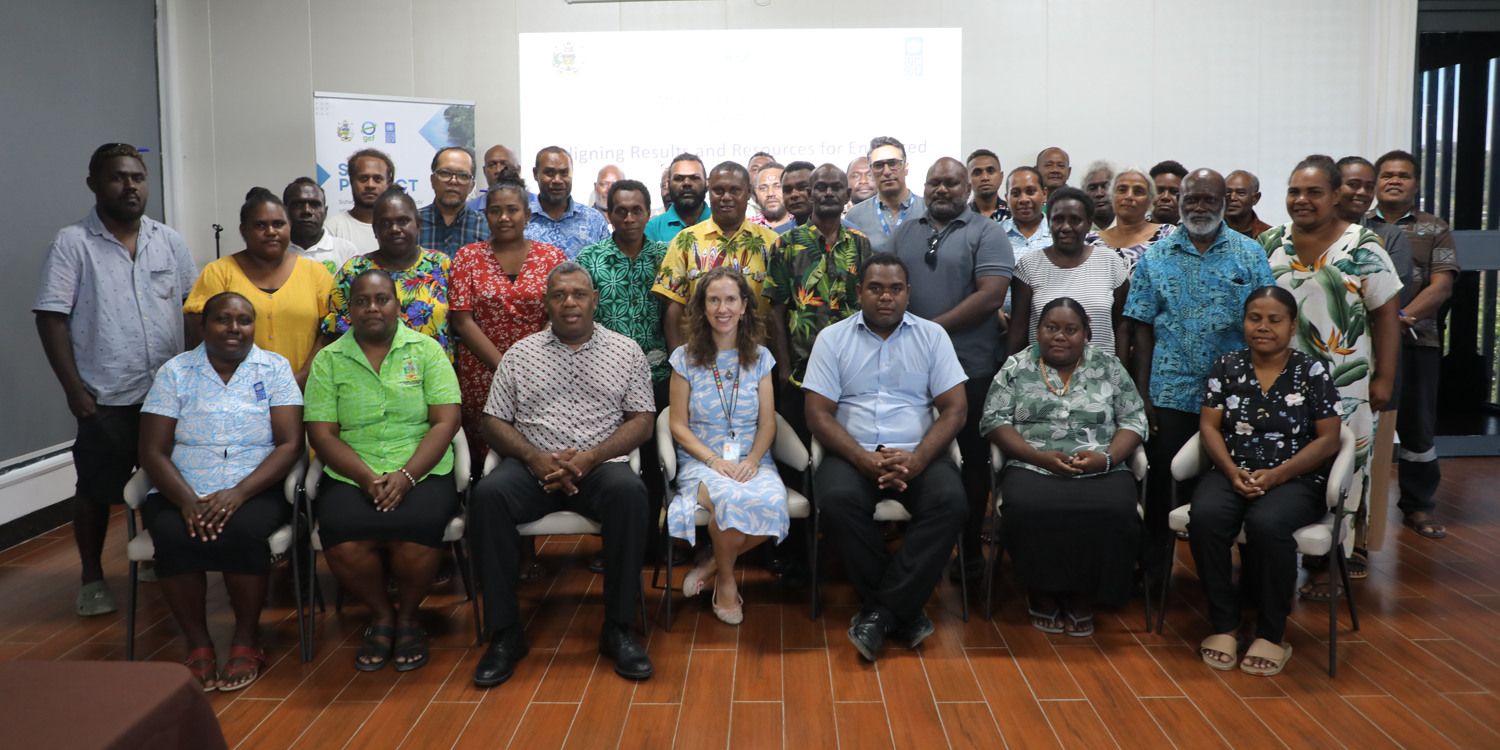The Ministry of Environment, Climate Change, Disaster Management and Meteorology (MECDM), in collaboration with the Ministries of Agriculture, Forestry and Fisheries and its partner the United Nations Development Programme (UNDP), has commenced a high-level strategic planning workshop for the Global Environment Facility (GEF-7) SAFE Project.
The workshop, held at the Outback Resort Hotel in Honiara, is aimed at refining the project’s direction and strengthening its role in safeguarding the nation’s unique biodiversity and ecosystems.
The SAFE Project – formally titled “Safeguarding Solomon Islands’ Endemic and Globally Threatened Biodiversity and Ecosystem Services from Key Threats, particularly Invasive Alien Species and Unsustainable Land Use Practices” – is a six-year investment running from 2023 to 2029.
The project focuses on five provinces: Malaita, Western, Choiseul, Isabel and Temotu. It is designed to advance biodiversity conservation, management, and restoration across critical landscapes in the Solomon Islands.
Welcoming participants, Dr. Chris Vehe, Supervising Permanent Secretary of MECDM, described the workshop as a timely opportunity to “reflect on where we stand, plan the SAFE Project’s activities for 2025 and beyond, re-assess its results framework and geographic focus, and ensure alignment with national priorities.”
He noted that the workshop would enable participants to “review progress, identify challenges, and chart a stronger path forward so that SAFE delivers on its intended outcomes.”
Despite implementation challenges, Dr. Vehe emphasized the project’s “enormous potential to achieve meaningful results for biodiversity, ecosystems, and communities.”
He urged participants to “think critically and strategically about how SAFE can be better integrated into national priorities and legal frameworks” while aligning with key policy instruments such as the National Biodiversity Strategic Action Plan (NBSAP), Nationally Determined Contributions (NDCs), the National Development Strategy (NDS), and the National Adaptation Plan (NAP).
The SAFE Project is designed to strengthen institutions for biodiversity protection, build capacity across government levels, and empower communities—who remain at the frontline of natural resource management.
Dr. Vehe also stressed the importance of knowledge-sharing and global cooperation, noting that “the work of SAFE should not remain confined to Solomon Islands alone.”
He highlighted the value of learning from international best practices and building partnerships to attract additional technical expertise and financial resources.
The workshop has brought together a distinguished group of participants, including the UNDP Deputy Resident Representative, members of the SAFE Project Team, and officials from both national and provincial governments. The Ministry expressed its appreciation to UNDP for its strong collaboration and continued support.
In closing, Dr. Vehe reminded participants that the success of the workshop rests on their active and constructive engagement.
He called for “clear, practical, and ambitious plans” that would position SAFE as a flagship initiative for the conservation, management, and restoration of the Solomon Islands’ threatened and endemic biodiversity.
The workshop will conclude on Friday, 22 August 2025.
– MECDM









